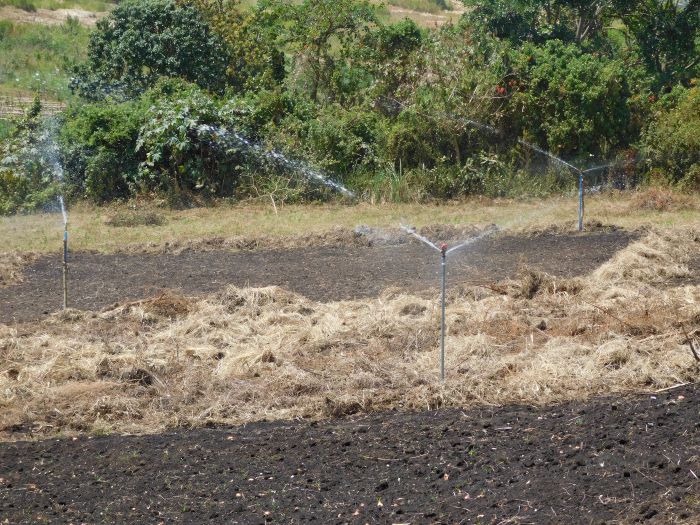KABAROLE, February 3, 2024 – The Kabarole district LCV Chairman, Richard Rwabuhinga has advised farmers in his district to embrace irrigation technologies to boost agricultural production.
Highlighting government’s emphasis on enhanced production through supporting farmers with irrigation technologies, Rwabuhinga observed that it will ensure food security and improve household incomes.
Rwabuhinga was speaking on Wednesday during the orientation meeting of the farmers on the Micro-scale Irrigation Project at the district headquarters in Kitumba. The project is being implemented by the Ministry of Agriculture, Animal Industry and Fisheries [MAAIF].
The government of Uganda is actively promoting increased food production by facilitating the acquisition of irrigation by the farmers so that they are able to farm throughout the year, without having to worry about drought.
Rwabuhinga also urged other district leaders to sensitise communities on the benefits of the irrigation project. “This initiative is aimed at enhancing agricultural output, boost household incomes and contribute to the nation’s aspiration to become a middle income economy, let’s embrace it,” said Rwabuhinga.
On his part, the Kabarole Resident District Commissioner, Festus Bandeeba said it was important for the district the technical team and political leaders to guide farmers on government development programmes. “I really commend government for implementing such programmes which are targeting farmers to increase food production. These farmers however, need guidance on such projects,” Bandeeba said.
He highlighted that despite some misconceptions, many farmers are benefiting from modern agricultural technologies and President Museveni’s advice on embracing a four-acre model where a farmer can grow food crops, cash crops, and rear animals, and birds among other activities.
Meanwhile, Baker Isingoma, the Kabarole District Micro-scale Irrigation Project Focal Person said the project was introduced in the district last year and has so far benefited 59 farmers.
He said three demonstration sites have been established in the district to help farmers learn how they can use micro-scale irrigation technologies to boost vegetable and crop production.
“This is a co-funding project where farmers contribute 25 percent and government contributes 75 percent to the purchase of the irrigation equipment through a matching grant scheme. The beauty of the initiative lies on farmers being able to cultivate crops even during the dry season leading to increased earnings,” Isingoma explained.
While Uganda possesses abundant freshwater resources, a lack of water infrastructure, and the increasingly erratic rainfall brought about by climate change are just two of the challenges faced by its farmers.
Buy your copy of thecooperator magazine from one of our country-wide vending points or an e-copy on emag.thecooperator.news
